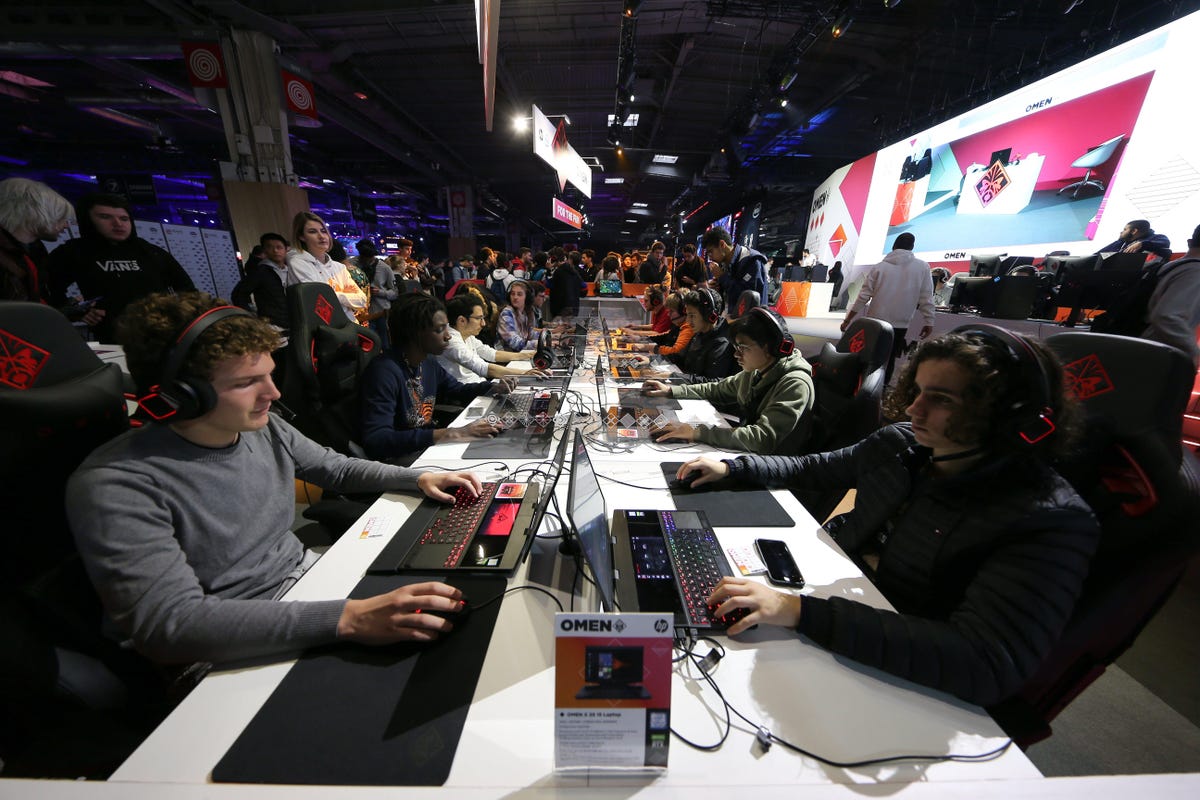Over the past decade, artificial intelligence (AI) has become an increasingly popular topic across a wide range of industries. The gaming industry, in particular, has experienced significant changes due to the introduction of AI. Video games are no longer limited to static environments, pre-programmed enemies, and predictable game mechanics. Instead, AI has brought about new possibilities for interactive gameplay, allowing players to experience a more immersive and dynamic gaming environment.
AI in gaming has led to advancements such as intelligent NPCs, adaptive game environments, and improved player experiences. With the introduction of AI, game developers can now create NPCs that exhibit lifelike behaviors, allowing players to experience a more realistic and unpredictable game world. Additionally, AI can be used to create dynamic game environments that adapt to player behavior, leading to a more engaging and challenging gaming experience.
GammaStack is a platform that allows you to integrate AI into your gaming software. It comes with everything you need to implement AI into your games.
Intelligent NPCs: How AI is changing the game character experience
In games, AI is essential for creating a realistic world full of believable characters. It can be anything from a simple NPC (non-playable character) that needs your help to a mighty boss monster that wants to kill you. In many cases, it’s all about making the player feel like they’re part of a living, breathing world where everything has its own purpose, even if it seems like it doesn’t.
As technology progresses and new techniques are developed, AI becomes more complex and realistic. Here are some ways in which AI is revolutionizing the gaming industry:
1. Improved Conversations
One common issue with NPC conversations is that they follow a strict script that doesn’t allow for much variation in how the conversation plays out. AI can be used to create better dialogue trees that allow players to explore different paths within a conversation rather than having it play out in exactly the same way every time.
2. More Engaging Characters
One of the main reasons people play video games is to interact with other characters. These characters can range from enemies and allies to shopkeepers and bystanders. The more realistic these NPCs are, the more immersive your gaming experience will be.
3. Better Storytelling Experiences
The best video games have stories that suck you right in and make you feel like you’re part of their world. Stories where NPCs only say things when prompted by players rarely allow for this kind of immersion because they feel less alive than those with autonomous characters do.
4. More human reactions
Characters that react emotionally are much more engaging than those who just follow pre-programmed commands or scripts. For example, Mass Effect: Andromeda used AI software from Behavior Tree Toolkit (BTT) to create believable behavioral responses for its NPCs during gameplay. BTT allowed developers to create complex decision trees that could respond appropriately when faced with different scenarios during gameplay.
The future of autonomous games: What to expect from AI in gaming
The gaming industry has always been at the forefront of new technology, and now artificial intelligence (AI) is transforming the way we play games.
As a result, developers are looking for ways to incorporate AI into their games, in order to make them more engaging and immersive. In fact, one study found that players are willing to spend more on games that incorporate AI.
Here are four ways AI is revolutionizing the gaming industry:
1. AI-powered characters
The most obvious use of AI is in character development and animation. AI-powered characters can learn from their mistakes and improve their performance over time, which makes them more engaging and fun to interact with. They also allow players to train themselves while playing against an opponent that adapts to their style of play.
2. Virtual assistants
A virtual assistant is an artificially intelligent character that helps users interact with a game or app. They can be used in many different ways, such as providing instructions and tips on how to play or helping users strategize their next move.
3. Immersive environments
The best way to understand the potential of AI and gaming is to look at virtual reality (VR). VR is an immersive environment that lets you immerse yourself in a digital world. It allows you to interact with objects within that world, whether it’s playing a game, watching a movie, or interacting with other people.
4. Gamification
Gamification can be found in many different industries, but it’s particularly popular in marketing because it allows companies to track user behavior and give them rewards based on that behavior. For example, if you visit a website often enough or complete certain actions, you might be rewarded with points or badges that give you access to new content or deals.
Wrapping Up
The current rise in popularity of artificial intelligence and machine learning has sent people throughout the video gaming community into a frenzy, wondering what changes it will make to their favorite pastime. The answer, as with any new avenue of technology that enters the market, is that it’s too early to tell.
We’ve had AI for decades now, and many have been predicting its imminent takeover for just as long. But if the last few decades of AI research have taught us anything, it’s that this technology may be smarter than we give it credit for. Regardless of where we go from here though, there’s no denying that artificial intelligence is taking center stage for the foreseeable future.
GammaStack can help you leverage the latest in deep learning technology to give you deeper insights into your players’ behavior, helping you make better decisions about how to monetize them, retain them, and grow your game.
View your news on Google News or contact our team 


